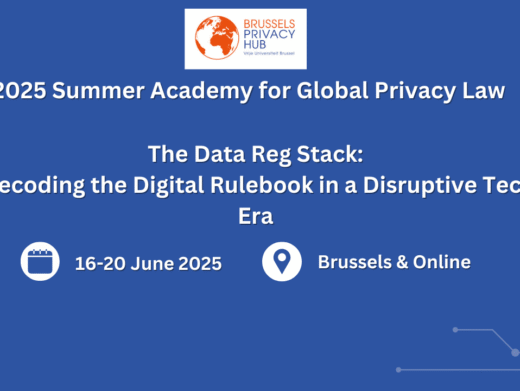UK law
New rule restricting broadcast ads for qualifying cryptoassets in force
The Broadcast Committee of Advertising Practice (BCAP) has published a new rule that explicitly bans ads for certain types of cryptoasset products from being broadcast to mainstream, non-specialist audiences. These products were already subject to such a restriction under rule 14.5.4 of the BCAP Code, as the products are not regulated by the Financial Conduct Authority (FCA). However, in October 2023 the FCA took on regulation of the advertising of fungible and transferable cryptoassets, a category which includes cryptocurrencies and utility (fan) tokens. These ‘qualifying cryptoassets’ were categorised as Restricted Mass Market Investments, meaning they can be marketed to the public subject to restrictions that recognise their risk level and require investors to undergo pre-vetting. BCAP considers that adding this category explicitly to the Code will maintain the existing restriction of such products to appropriate specialised broadcast audiences. At the same time, it will add more precision to the rule to acknowledge this broad and widespread category of investments that did not exist at the time of the rule’s creation, and remind broadcasters of the statutory restrictions that apply to advertising for them. Cryptoassets that are not included under the ‘qualifying cryptoassets’ category will continue to be caught under rule 14.5.4, which covers unregulated investments more generally. The rule adds clarity for industry and consumers, but does not alter existing policy on the advertising of these products. The change has undergone consultation and been approved by Ofcom and takes immediate effect.
DSIT confirms introduction of Cyber Security and Resilience Bill into Parliament in 2025
The Department for Science, Innovation and Technology has confirmed that the Cyber Security and Resilience Bill will be introduced to the UK parliament in 2025. The Bill was included in the King’s Speech in July. It aims to strengthen the UK’s cyber defences, safeguard critical infrastructure and essential services from rising cyber-attacks by protecting more digital services and supply chains and enhance incident reporting.
CMA decides that Amazon / Anthropic partnership does not qualify for investigation
The CMA has published a summary of its Phase 1 decision under which it has decided that the partnership between Amazon and Anthropic PBC does not qualify for investigation under the merger provisions of the Enterprise Act 2002. It considered if certain elements of the partnership, taken together, could lead to Amazon having material influence over Anthropic. However, the CMA did not need to reach a conclusion on material influence as it found that Anthropic’s UK turnover does not exceed £70 million in the UK. Based on the available evidence, the parties together do not account for a 25% or more share of supply of any description of goods or services in the UK. Consequently, the CMA does not believe that it is or may be the case that a relevant merger situation has been created.
FCA opens Digital Securities Sandbox
The Bank of England and the Financial Conduct Authority have published a policy statement and final guidance to launch the Digital Securities Sandbox. The Sandbox will allow participants to use developing technologies, such as distributed ledger technology, to undertake the activities traditionally associated with central securities depositories and trading venues.
DRCF issues call for views on Workplan 2025/26
To inform its plan of work for 2025/26, the Digital Regulation Cooperation Forum wants to hear views on areas of cross-regulator collaboration it should prioritise. Through coordinated digital regulation between DRCF member regulators, the aim is to protect and empower people online, support regulator effectiveness and unlock digital innovation and economic growth. DRCF members are currently cooperating across a range of areas, including AI and foundation models, harmful design, online advertising, online safety, digital identity and other emerging technologies. Its AI and Digital Hub provides guidance to innovators on cross-regulatory queries. To help shape future DRCF work, it wants to hear where there are intersections between regulatory regimes or confronting uncertainty around their potential interplay, whether linked to existing areas of work or otherwise. The call for views ends on 8 November.
EU law
CCPC investigates suspected anti-competitive conduct in the healthcare software sector
The Irish Competition and Consumer Protection Commission has opened an investigation into suspected breaches of competition law by the healthcare software company, Clanwilliam. The investigation relates to the provision of Electronic Patient Record (EPR) software and related services such as electronic referrals and text messaging services. EPR software is an important tool in the healthcare sector and typically helps healthcare professionals to manage patient consultations; update, store and share patient records; process and analyse patients’ clinical information; manage appointment bookings; and manage prescriptions.




